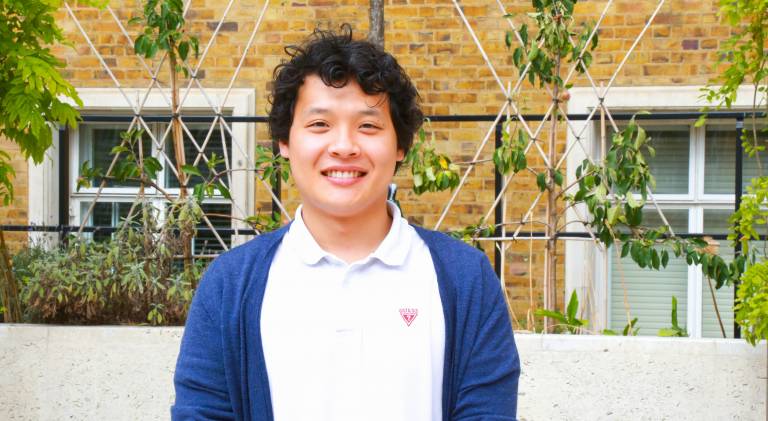Tonggih Kang - MSc Molecular Modelling
It is nice to make new connections with new people who have similar academic interests with me. Without any doubt studying at UCL is probably the best investment for my whole life...

20 October 2019
What is your educational background?
I graduated from The University of Sheffield in September 2018 with a BSc Chemistry. Since September 2018, I have been a Masters student on the Molecular Modelling course with the ‘Molecular modelling and Materials Science’ (M3S) CDT group at UCL. My current research project is being supervised by Professor Scott M Woodley.
What are your motivations for pursuing a graduate-level qualification?
I found that computational and theoretical (C&T) studies are fascinating. The first inspiration to study C&T was from my Summer research project in 2017 at the Computational & Theoretical chemistry research group in The University of Sheffield under Prof. Anthony J H M Meijer. Moreover, I have always admired my academic tutor’s (Prof. Patrick W Fowler) work, which is heavily based on Mathematics.
Why did you apply to UCL for graduate study?
UCL has the biggest computational and theoretical research facility, as well incredibly well reputed academics with experience in the field. A huge advantage is because of the scale of research groups, there are many seminars and conferences opening near UCL. Also, the course was exactly what I wanted to study and only UCL has that specific course.
What is the best thing about your course?
The course module consists of 50 % of taught modules and 50 % practical assessment. I found that is very helpful to learn because after couple of hours taught lectures, I have chance to apply what I learned to the practical assessment.
What do you find interesting about your field of study and what inspires you?
Theoretical work is very important in order to study existing and unfound materials or even extremely dangerous materials such as, radioactive materials. Actually, the computational modelling technique was initially invented to study nuclear fusions.
My current research project is studying a new material, titanium ceramics that can be synthesised in extreme conditions, but the material cannot be existing at the ambient conditions, therefore it needs to be studied theoretically. It is fascinating that I can contribute to the world to help to find the new material through computational and theoretical studies.
Do you think studying at UCL Chemistry is a good investment?
Without any doubt studying at UCL is probably the best investment for my whole life.
What is it like studying in London and how do you think it has benefited your studies?
Because London is one of the biggest Metropoles, it is very easy to access cultural/art/scientific events. Experiencing other fields is really important to destress and open the mind for the study.
What are your career plans once you’ve completed your current programme of study at UCL?
I will do a PhD under my current supervisor, Prof. Scott M Woodley. After the PhD, I cannot tell exactly what I am going to do but I might continue as a PDRA to further my career.
Is there anything else you would like to say about your time at UCL Chemistry?
It is nice to make new connections with new people who have similar academic interests with me. Every moment is challenging because of the intense master’s research project but I can even feel I am learning a lot of new things that I have never come across.
 Close
Close

